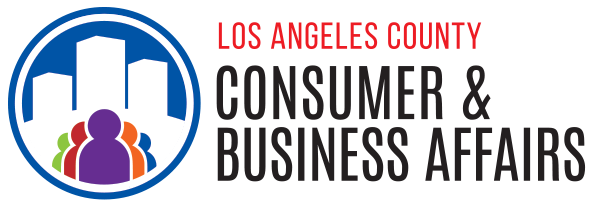Services
The LAC DRP provides funding to organizations for mediation and conciliation services in three categories: Community-based, Day-of-Hearing, and Restorative Justice.
The California Dispute Resolution Programs Act of 1986 funds informal dispute resolution programs in counties, offering conciliation and mediation services for civil limited matters up to $35,000. The Los Angeles Superior Court has partnered with other Alternative Dispute Resolution Providers for mediation disputes exceeding $35,000. You can access the
Civil Mediation Vendor Resource List by visiting the LASC’s website at: https://www.lacourt.org/ADR/programs.html?tab=lc
A confidential and voluntary meeting between disputing parties and a trained, neutral mediator who guides a discussion of issues toward a mutually acceptable agreement. Mediators do not take sides or decide how a dispute should be resolved.
A mediator helps parties resolve their dispute by easing communication, fostering understanding, and guiding them to identify and explore their interests, issues, and potential areas of agreement. If the parties still can’t come to an agreement after mediation, the mediator can also help them assess the likelihood of a court hearing.
Mediation works best when everyone wanting to settle a dispute is eager to do so. Although mediation can help people come to an agreement, it is important for everyone to be ready to take part and be open to negotiating their needs for mediation to work.
- Mediation is a voluntary process where each party determines how to resolve the conflict.
- Mediation is the best way to settle your disagreement if you want to talk about the problem and come up with a solution “together”.
- Mediation is not appropriate if the ‘crime’ is expected to be investigated. Using mediation to “win” a dispute by making the other side “lose” is not a good idea.
- Compromise is a negotiation strategy where both parties agree to a fair and equitable split of their positions, aiming to resolve issues quickly and efficiently.
- You should go to mediation if you can give the other person’s point of view a lot of weight even though you don’t think it’s important.
- If you can’t listen to what the other person has to say, maybe you’re not ready for mediation.
- You might be able to resolve your issue through mediation. Work with the other person to find a solution to a problem that benefits both of you.
- If you’re ready to discuss a dispute, don’t put it off; it won’t benefit anyone. Instead of avoiding problems, put those that can be fixed at the top of your list.
Mediation should not be used as “evidence”. Conversations are considered confidential unless mutually agreed upon by both parties, the mediator, and all third parties involved.
Counselor
Litigation
Go to court Can the court tell us to go back to mediation?
Yes, but they cannot force you to mediate. Sometimes, where cases get to court, judges can adjourn proceedings and direct parties to attend mediation. In some cases, a judge may consider that an agreement regarding a dispute could be reached in mediation. Adjournments are usually a minimum of six weeks to allow mediation to be exhausted. However, even in these circumstances the parties can still decline to mediate. No one can be forced to mediate as it is a voluntary process! Again, however, where parties decline to mediate, the judge will certainly be interested in why the parties have come to this decision. Remember that the courts expect parties to try and settle disputes at mediation and it is true that many cases are better resolved in mediation rather than in the court.
Mediation is a beneficial method for resolving disagreements, as it allows each side to have a say in the solution. It can resolve breaches through settlement, new agreements, or maintaining the original agreement.
- TALK: It would be easiest if both sides wrote up a new deal with clear tasks and signed it. This could be the next step in the settlement. This can be a continuation of the mediation process.
- VERBAL AGREEMENT: A verbal contract is a deal between two people and can be legally binding, even if there is no proof. It needs an offer, an acceptance, a deal, and a knowledge of the rules. The details depend on the case. It’s very important to go over any verbal agreements that were made during mediation.
- Out-of-Court Settlements: If an individual violates the terms of a mediation settlement agreement, they may be subject to legal consequences, such as allegations of breach of contract that require them to appear in court and potentially face legal action.
- Court Settlements: Code Civ. Proc., § 664.6 aims to streamline the process for parties to uphold settlement agreements, usually achieved via mediation, on the day of hearing. Based on the filed agreement submitted to the court, the judge could enter a judgment/ruling.
If the mediation process fails, and you do not reach an agreement or settlement, you can still bring the issue to court. Parties do not relinquish their right to litigation if they wish to resolve the dispute in mediation first.
You contact us for an initial consultation and we will determine if your issue is appropriate for Community Mediation.
If mediation is appropriate, you give us the contact information of those involved and we then invite the other person(s) to a mediation.
When all parties agree to mediate, we will schedule your appointment with a Community Mediator(s) that we select.
Mediations are scheduled Monday through Friday, from 9am – 6pm.
The mediation happens virtually or in person. If an agreement is reached, the mediator will memorialize it in a written agreement form.
IN ADDITION TO SUBMITTING A CASE ONLINE, DID YOU KNOW THAT WE ALSO OFFER WALK-IN CLINICS?
There is no charge to participants for Community Mediation services. Funding for the Community Mediation services is provided by the County of Los Angeles Alternative Dispute Resolution (ADR) Program.
To qualify, at least one of the parties to the mediation must reside in or the business must be in the County of Los Angeles.

